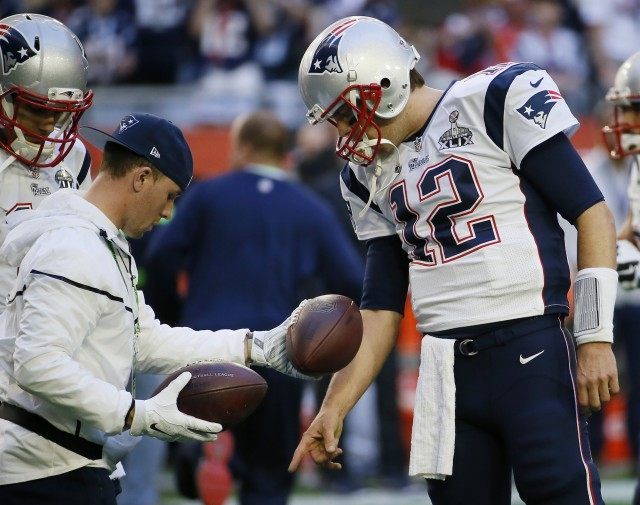If you understand the “Deflategate” football scandal, you understand what is wrong with the Iran nuclear deal.
On Tuesday, New England Patriots quarterback Tom Brady lost his appeal against a four-game suspension imposed by the National Football League for allegedly using under-inflated footballs. On Wednesday, U.S. Senator Tom Cotton (R-AK) humiliated Secretary of State John Kerry and Secretary of Energy Ernest Moniz by showing they never read two secret side deals between Iran and the International Atomic Energy Agency (IAEA).
The other reason is that the side deals lay out how Iran is to report on its suspected nuclear sites. One of the provisions, allegedly, says that Iran is going to be responsible for testing its own military facilities.
Sen. Cotton said that would be like a football player administering his own drug test. It is also like a football team being responsible for the air pressure in the game balls it will use when its offense is on the field.
When Deflategate erupted, it came as a surprise to many football fans that once an official had checked the balls prior to the game, the teams, not the referees, were responsible for the balls. (There are new rules now.) That left the door wide open for abuse. In addition, Brady destroyed his cell phone, which supposedly erased potential evidence.
Like the Iran deal, there was no way to prevent cheating. By the time the problem was tackled, the Patriots had already won the Super Bowl. Likewise, Iran may already have nuclear weapons capacity by the time the IAEA figures out what the regime is doing.
There is a danger of stretching the analogy too far: one of these two entities is a totalitarian regime governed by a tyrant in strange headgear; the other is just a country in the Middle East.
But there is another danger: the false positive. Brady still protests his innocence: he may be right. Yet given New England’s history of cheating, very few are willing to give him the benefit of the doubt.
Similarly, it is possible–though very unlikely–that Iran might actually try to comply with its agreements. But given Iran’s history of cheating on nuclear treaties, its neighbors will not trust it if evidence emerges to suggest its illegal activities might be continuing. We could then see a reprise of Iraq, where a false positive led to war.
The only answer in the NFL is to have officials control the footballs. The only answer in Iran is to provide complete, anywhere, anytime inspections of all sites. The Iran deal does not.

COMMENTS
Please let us know if you're having issues with commenting.